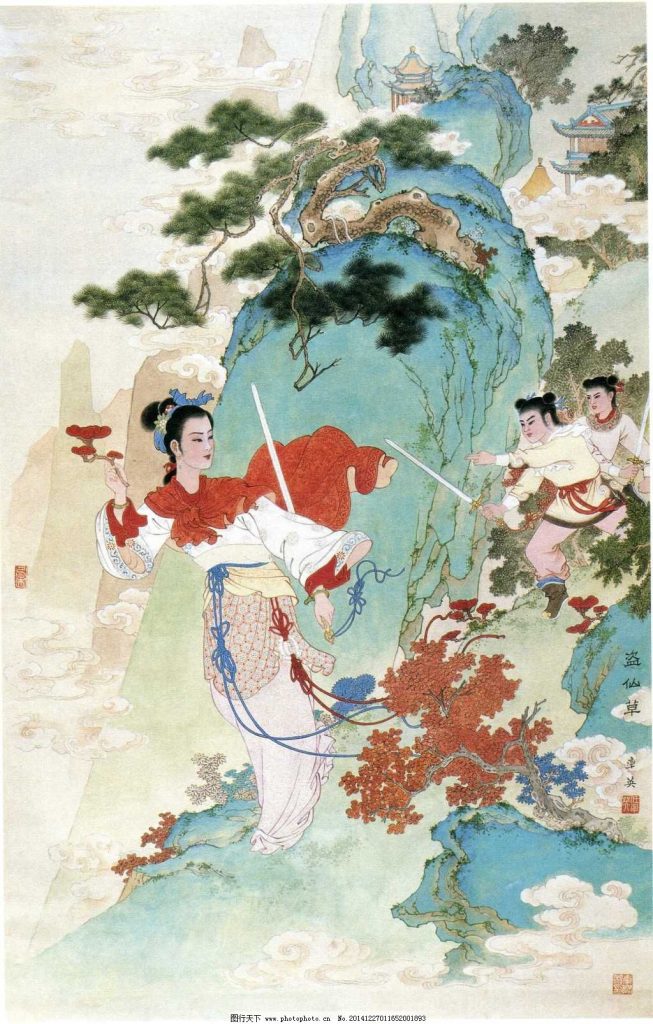More than two thousand years ago, there was already evidence of Chinese worshiping Lingzhi (Reishi mushroom). Myths associated with this magic plant can be found in history.
In the Book of Mountains and Seas of the Warring States Period (476-221 B.C.), the young daughter of Emperor Yan, Yaoji, was mystified that she turned into the herb, Yaocao (Grass of Yao), after she died. A poet from Chu, Song Yu engaged her in the fairy tale love story with a god. The myth eventually made Yaoji the origin of Lingzhi (Ganoderma).
In the Legend of the White Snake, the heroine White Snake went alone to Mt. Emei to steal the celestial herb (i.e., Lingzhi) in order to save her husband’s life. She overcame all sorts of hardships and finally moved the heart of the God, who let her have the magical herb that revived her husband from dead. The love story has become the subject of countless novels, dramas, movies and posters in China (Fig. 1-1).

Fig. 1-1 Poster of the White Snake stealing Lingzhi
References
Lin ZB (ed) (2009) Lingzhi from mystery to science, 1st ed. Peking University Medical Press, Beijing, pp 2



